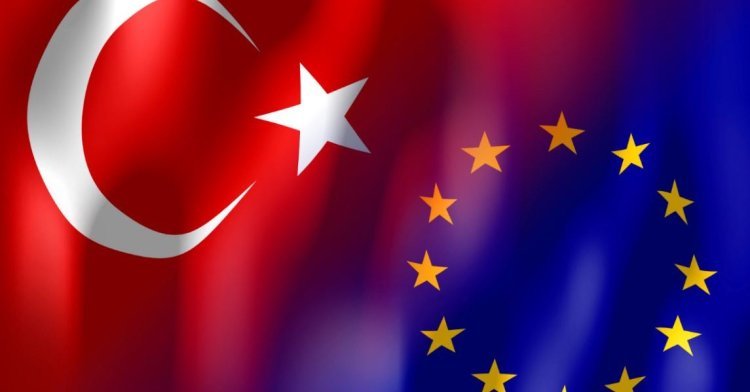Recently, there has been an uptick in positive communication and improvement in the relations between the EU and Turkey. On 9th January, Turkish President Erdogan had a virtual conference with European Commission’s President Ursula von der Leyen, and EU foreign policy chief Josep Borrell. In addition, the Turkish President met envoys of various EU nations at Cankaya Palace, Ankara on 12th January. Exploratory talks between Greece and Turkey are also scheduled for later this month, the first since the breakdown of negotiations between the two neighbours in 2016. While some are expressing hope about improving ties between the EU and its closest neighbour, others are taking these developments with a pinch of salt, pointing at talks between European leaders about their Turkey strategy slated for March.
Turkey has had a tumultuous relationship with the European Union, both before and after becoming an accession candidate in 2004. Several issues have complicated the EU’s relations with the country recently, and these are expected to crop up again in March. Let’s take a look at the major complications that could hinder future discussions.
Sanctions against Turkey
Just a month ago, leaders from Greece and Cyprus had sought stricter sanctions against Turkey for its “unauthorized drilling activities in the Eastern Mediterranean.” The dispute lays in competing claims over maritime boundaries between Greece and Turkey. Another complication is that Turkey’s claims in the region are based on its occupation of Northern Cyprus, which has led the island country to push for stricter actions against Erdoğan’s government. This development has led to fears of a direct military confrontation between the two NATO members among other European states.
The call for sanctions does not have widespread support, even within the EU. Several member states, like Germany, have been sceptical about imposing further sanctions, keeping in mind Turkey’s strategic importance to the bloc for both restricting migration into the EU as well as for anti-terror coordination.
Turkey and migration
A €6 billion deal between the two, signed in 2016, stipulated that migrants from Greece who failed to qualify for asylum would be accepted by Turkey. Turkey would also control its borders more strictly to control the numbers seeking to leave for Greece in order to get admission to the EU.
This deal has provided Turkey with some leverage in its relations with the bloc. After a dispute with the EU last year, Turkey partially fulfilled its threat of “opening the gates” to refugees, leading to thousands travelling to the border with Greece. EU leaders are aware of Turkey’s importance in hosting refugees seeking shelter in Europe and are therefore willing to make compromises to maintain peace.
With the EU concluding the fund’s final instalment in December last year, updates on the migration policy are expected later this year. According to a statement issued by the Turkish Presidency on Twitter, President Erdoğan says that 2021 has offered “a productive atmosphere in terms of new cooperation to be built in the sphere of migration.” Turkey is expected to ask for more funds in return for keeping a check on migrants crossing over to Europe, and the EU is likely to agree, but probably only after imposing additional conditions of its own. Beyond migration, Turkey has also been a worthy ally of the EU in another area—NATO. However, even this relationship is not without controversies.
Actions under NATO
Turkey is a key member of NATO, second only to the US in the size of its standing army. To the EU, it has become a crucial buffer for the movement of European ISIS fighters in and out of Syria and Iraq. However, in recent times, Turkey has come under fire for its deepened defence ties with Russia. The purchase of Russian S-400 missile defences was resented by several member states for the fear that it would give Russian engineers an insight into the NATO air defence system. Despite Turkish Foreign Minister Mevlut Cavusoglu’s statement that these relations were not an alternative to ties with NATO and the Union, these actions led to a sanction by the US. Beyond that, Turkey and France’s standoff in the Mediterranean in mid-2020 highlighted additional rifts within NATO. French President Macron has also said that NATO’s was suffering from “brain death” due to Turkey’s decision to launch a military operation in Northern Syria without consulting its alliance members.
Disputes like this have led some countries like Greece, France, Cyprus and Austria, to attempt to block arms sales to Turkey. While these attempts were blocked and a decision about it pushed to March, it is worthwhile to note that just in December, President Erdogan had expressed scepticism about the EU’s ability to retaliate. This is apparently due to the fact that the Turkish defence industry has always initiated development in a specific weapon or military equipment after Western countries have imposed an embargo on it.
What lies in the months ahead?
While Turkey has softened its stance and shown that it is open to talks by pausing drilling activities in the Mediterranean, some diplomats have doubts about a profound change in the relations. They expect President Erdogan to take a more aggressive approach before March. European leaders are expected to attempt to control Turkey’s actions by offering incentives like the expansion of the Customs Union and moving forward on the issue of accession. However, Tukey is also likely to push for more favourable deals through its leverage on a migration deal. While there is some hope for more peaceful and productive relations with Turkey in the future, we need to keep an eye out for the talks with Greece later this month to see what tone Turkeys sets as well as what stance countries like Greece are likely to take during the discussions in March.


Follow the comments: |
|
